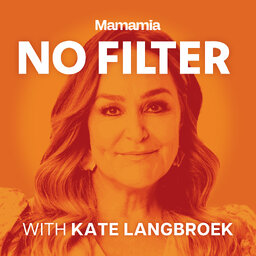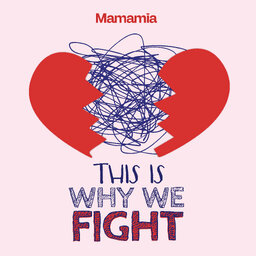Her Whole Childhood Was A Lie. Tyler Wetherall’s Incredible Story (Part 1)
“That’s not your real name”
A secret past. A hidden identity. A childhood spent on the run.
Listen to part two of this conversation here.
When Tyler Wetherall was nine years old, Scotland Yard arrived at her home, and she discovered that her entire life had been a lie. Her father was a fugitive, her family had been living under assumed names, and the life she thought she knew had been built on deception.What you’ll hear:
- The moment Tyler learned her father was a fugitive
- What it was like growing up on the run
- How her family navigated living with false identities
- The emotional impact of discovering her true past
- How she came to terms with her father’s choices and wrote her memoir, No Way Home
THE END BITS:
Listen to more No Filter interviews here and follow us on Instagram here.
Discover more Mamamia podcasts here.
Feedback: podcast@mamamia.com.au
Share your story, feedback, or dilemma! Send us a voice message, and one of our Podcast Producers will get back to you ASAP.
Rate or review us on Apple by clicking on the three dots in the top right-hand corner, click Go To Show then scroll down to the bottom of the page, click on the stars at the bottom and write a review
CREDITS:
Host: Kate Langbroek
Guest: Tyler Wetherall if you'd like to buy Tyler's new book Amphibian, you can check it our here.
Executive Producer: Naima Brown
Senior Producer: Grace Rouvray
Audio Producer: Jacob Round
Mamamia acknowledges the Traditional Owners of the Land we have recorded this podcast on, the Gadigal people of the Eora Nation. We pay our respects to their Elders past and present, and extend that respect to all Aboriginal and Torres Strait Islander cultures.
In 1 playlist(s)
No Filter
Riveting stories. Fascinating lives. Australia’s #1 interview podcast, with Kate Langbroek.Social links
Follow podcast
Recent clips

Jonathan Van Ness: Addiction, HIV and the Wake-Up Call That Saved My Life
53:45

New Year, Same Me — Celeste Barber Keeps It Real
1:11:28

Introducing: This Is Why We Fight. Jess & David Have Different Definitions Of Cheating
1:09:43
 No Filter
No Filter